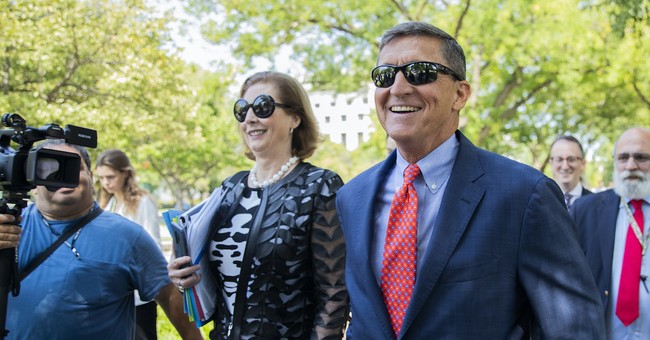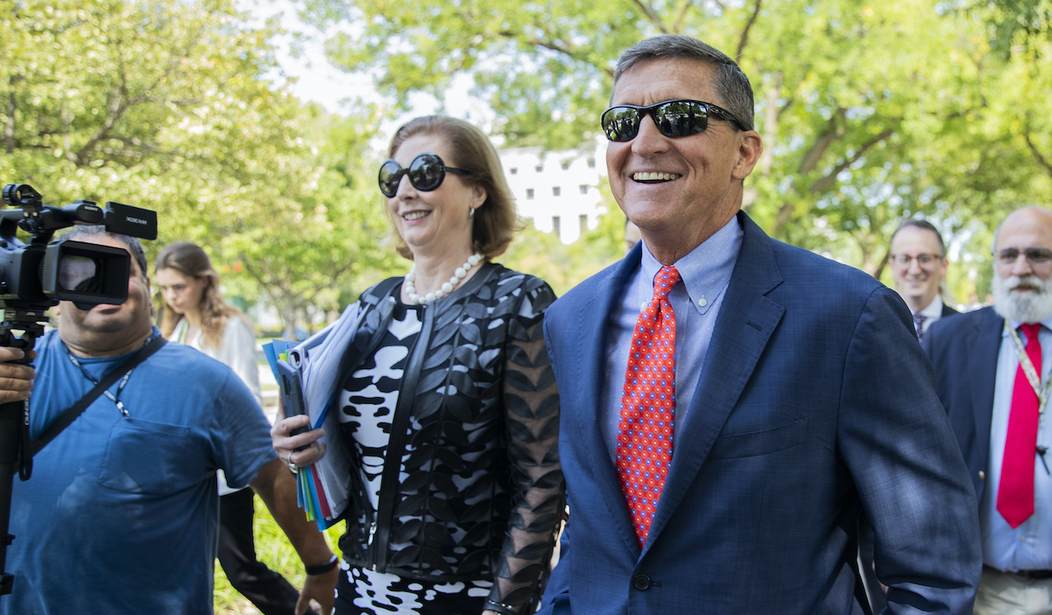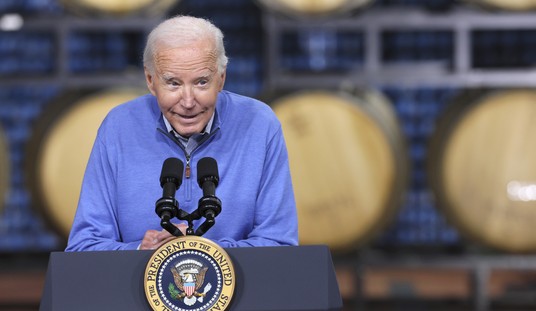
U.S. District Court Judge and partisan hack Judge Emmet Sullivan, unhappy with the DOJ’s request to dismiss their case against Gen. Michael Flynn, and hoping to push President Trump into issuing a pardon, has attempted to place as many obstacles as possible in their path. On Tuesday, he issued an order encouraging the submission of amicus briefs (I posted on this story here). On Wednesday, he issued a second order appointing retired New York federal Judge John Gleeson, another Never-Trumper, to make a non-binding determination on whether Flynn should be held in contempt for perjury for pleading guilty to a crime and later, trying to withdraw that plea. (I posted on this here.)
In his order, Sullivan wrote:
The executive branch has unreviewable authority to decide whether to prosecute a case. But once it secures an indictment, the proceedings necessarily involve the judicial branch. And the law provides that the court — not the executive branch — decides whether an indictment may be dismissed. The responsible exercise of that authority is particularly important here, where a defendant’s plea of guilty has already been accepted. Government motions to dismiss at this stage are virtually unheard of.
But the truth is that Gleeson has already made up his mind on this question. On Monday, Gleeson and two of his like-minded colleagues published an op-ed in The Washington Post in which they concluded, “Flynn’s guilt has already been adjudicated. So if the court finds dismissal would result in a miscarriage of justice, it can deny the motion, refuse to permit withdrawal of the guilty plea and proceed to sentencing.”
Attorney and legal analyst Sol Wisenberg joined Fox News’ Laura Ingraham on Wednesday night to discuss Sullivan’s latest misguided contrivance. (Video below.) He said:
Under the Fokker Case, which just came out two years ago, the DC Circuit, which governs Judge Sullivan, made it very clear if the government wants to dismiss a case, the District Court cannot refuse to do so because he doesn’t like the government’s theory. Because he thinks the government should continue the case. And it doesn’t matter if the defendant has pled or not.
The law is clear and former Judge Gleeson in his op-ed, made it seem like it’s all up to the judge now and it isn’t. The judge has a ministerial function.
Here is what’s going on here. I believe Judge Sullivan is trying basically to force Donald Trump to issue a pardon if he wants Michael Flynn to go free. That’s not right. Bill Barr has given his reason for why the case should be dismissed. He is the executive branch. He represents the executive branch in the courts and he’s allowed to do that.
The Fokker case is addressed in the following article from the Harvard Review. The article sums it up by stating, “as a matter of established law, the judiciary is not to second-guess the Executive’s decisions of “whether to initiate charges, whom to prosecute, which charges to bring, and whether to dismiss charges.” Here are several of the most relevant points:
5. 818 F.3d 733 (D.C. Cir. 2016). in which it held that to preserve “the Executive’s long-settled primacy over charging,”
46. Fokker, 818 F.3d at 744. Fokker’s narrower holding, that a court is not permitted to challenge the prosecution’s charging decisions, clearly aligns with precedent and basic separation of powers principles. Judge Leon admitted that had the DOJ decided not to prosecute or to dismiss the charges, the “Court would have no role here.”
47. United States v. Fokker Servs. B.V., 79 F. Supp. 3d 160, 165 (D.D.C. 2015). To the degree that Judge Leon based his denial of the motion on his belief that individual actors should have been charged or that different charges should have been brought, the panel was justified in criticizing the district court for “assum[ing] the role of Attorney General.”
48. Fokker, 818 F.3d at 747 (quoting United States v. Microsoft Corp., 56 F.3d 1448, 1462 (D.C. Cir. 1995)).
From the get-go, Sullivan’s bias against Gen. Flynn was evident.
The left makes the case that Flynn lied before the court (under oath) when he pleaded guilty to lying to the FBI, and now he’s saying that he did not lie to the FBI. So, if Flynn has told the court two opposing facts, that means he was lying on one of those occasions and therefore has committed perjury.
But facts and documents don’t lie.
When FBI records were unsealed two weeks ago, which should have been provided to Flynn’s legal team when the case began, or at the very least when lead Flynn lawyer Sidney Powell demanded them last fall, they showed unequivocally that top FBI officials had deliberately set-up the retired general.
Judge Sullivan can employ his delay tactics, and Democratic politicians and the media can spin and spin and try to cast the right’s attention to their wrongdoing as a “distraction,” but as I’ve said many times, the documents say what they say.
The profusion of revelations over the last few weeks has no doubt rocked the left to their core. None of this was ever expected to be discovered and had Hillary Clinton won the 2016 election, it would have remained concealed.
Ah, the splendor of scrutiny.













Join the conversation as a VIP Member